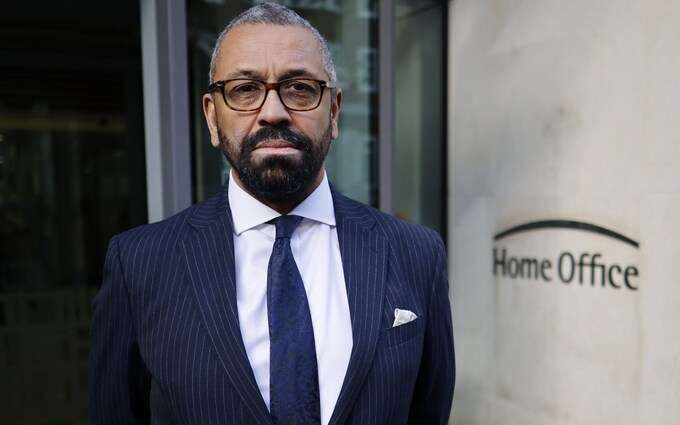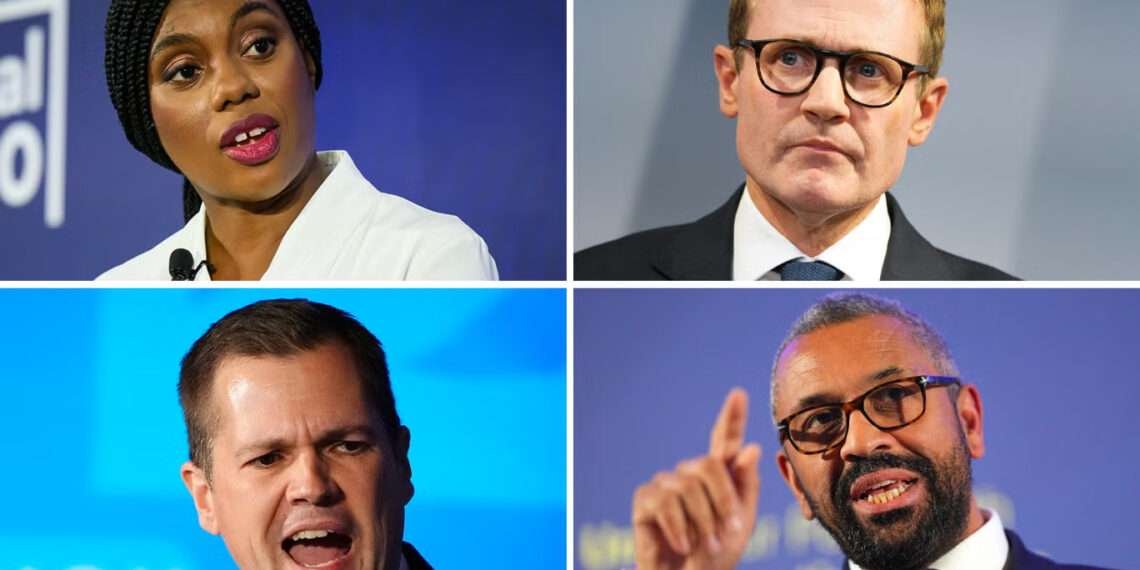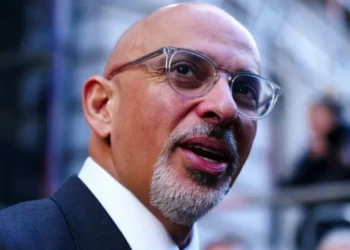On the second day of the Conservative Party conference in Birmingham, the four contenders for Tory leadership shifted sharply to the right, intensifying their rhetoric to appeal to the party’s core base.
Robert Jenrick ramped up his anti-immigration stance, Tom Tugendhat questioned the concept of a “climate emergency,” Kemi Badenoch reaffirmed her support for family values amidst controversy, and James Cleverly tackled transgender rights issues.
The leadership hopefuls are participating in a series of events at the conference — including hustings, Q&A sessions, and informal gatherings — to win over party members. These appearances have been described as a “beauty contest,” with each candidate striving to shore up support for their leadership bid by demonstrating their conservative credentials.
Despite a cautionary message from former Prime Minister Theresa May, urging the party not to mimic the far-right tactics of Nigel Farage and focus on recapturing the center ground, the leadership candidates appear to be leaning in the opposite direction.
May warned that the Conservatives had lost more seats to the Liberal Democrats than to the far-right and advised a return to more moderate policies, but her words seem to have gone unheeded.
Battle Over Conservative Values Intensifies
At a fringe rally, Robert Jenrick urged the party to take drastic action on human rights, stating that the UK must choose to leave the European Convention on Human Rights (ECHR) or face dire consequences.
Jenrick emphasized that remaining in the convention would result in “dangerous criminals” being allowed to roam British streets, asserting that the party “doesn’t have a future if it fails to fix this problem.” His strong rhetoric highlights the increasingly hardline positions being adopted by leadership candidates.
Kemi Badenoch, meanwhile, has been working to clarify her controversial comments about maternity pay. After stating that the UK’s system is “excessive,” she backtracked, saying she does indeed “believe in maternity pay.” However, she further declared that people in Britain are “scared to have families” and that policies should make life easier for new parents.

Speaking at a Conservative Women’s Organisation event, Badenoch pushed for stronger support for families, asserting that having children is “the most meaningful thing that any of us are ever going to do.” This stance appears to signal her determination to appeal to the party’s socially conservative base, despite the backlash she has faced.
Tom Tugendhat, often seen as a more moderate figure within the party, has shifted his campaign further to the right as well. He dismissed the idea of a “climate emergency,” calling Labour’s energy policies “completely insane.”
Tugendhat has been particularly critical of Ed Miliband’s plan to create a publicly owned clean energy company, claiming it would make energy more expensive and less secure.
Tugendhat, who has been considered a key voice in the One Nation group on the left of the Conservative Party, appeared to align more closely with the right-wing candidates by expressing openness to leaving the ECHR.

On the issue of energy independence, he said, “We need to make sure we are getting energy sovereignty back,” reinforcing his opposition to Miliband’s energy reforms, which he described as “utter rubbish.”
James Cleverly, another contender, weighed in on gender identity, focusing on the need for adults to guide children, particularly regarding complex decisions about gender. He argued that children’s brains are not fully developed and that adults should not allow children to “dictate” their gender identity.

Cleverly compared the development of human children to deer, noting that, unlike humans, deer are “pretty much ready to rock and roll” shortly after birth. He emphasized that childhood and adolescence are confusing times, and adults should help children navigate these challenges.
As the race for Tory leadership heats up, all four candidates seem to be abandoning the center ground and pushing for increasingly hardline positions in their bid to win over the party faithful.
The stakes are high, and with the future of the Conservative Party at a crossroads, the question remains whether a rightward shift will unite or further fracture the party.
READ ALSO: Mahama Takes 51.1% Lead Ahead of December Elections























